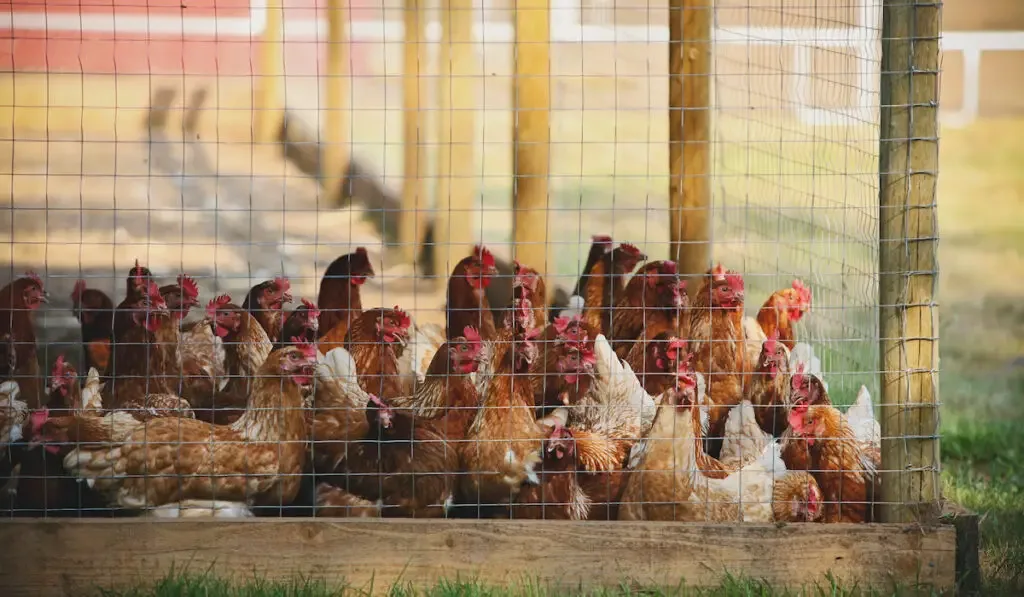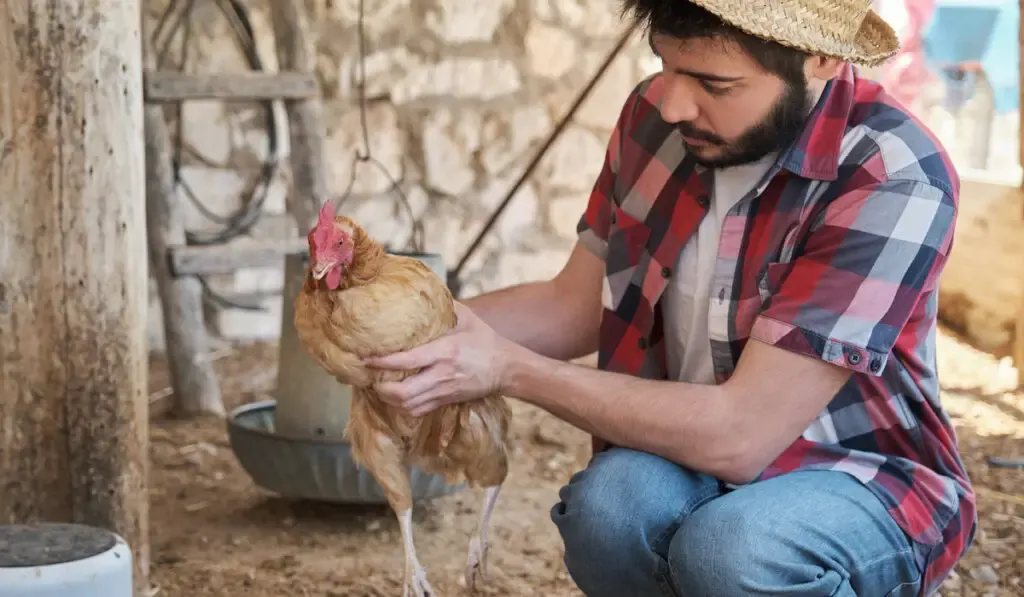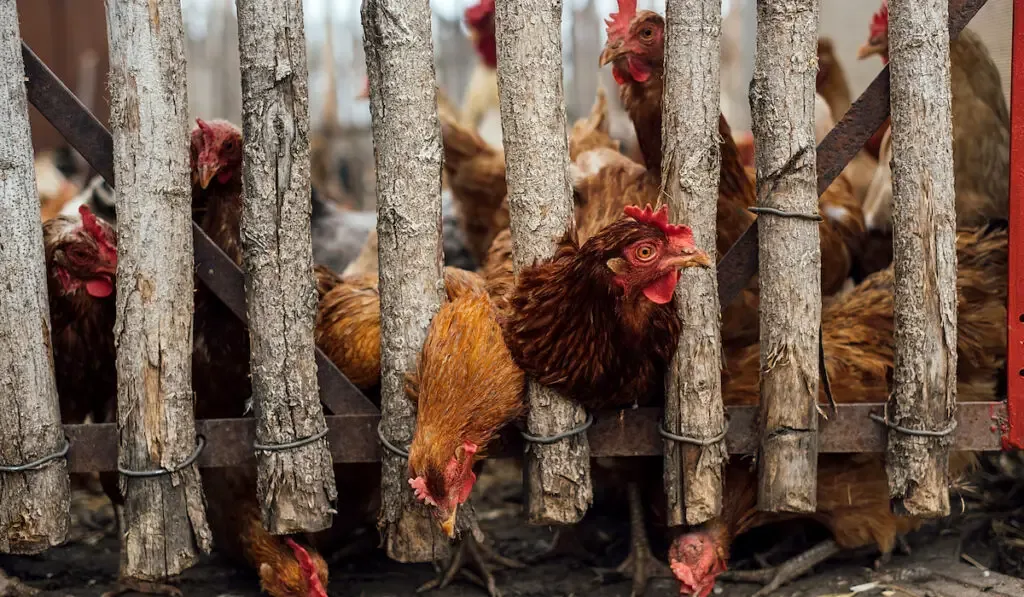Keeping and raising chickens is more popular than ever. People are keeping chickens in suburban backyards and on homesteads across the country. It’s a challenging hobby that comes with a lot of rewards.
Raising chickens is a terrific way to teach children responsibility, work towards self-sustainability, and eat more organically.
But caring for chickens isn’t easy. Raising chickens is a constant job of warding off predators, treating sick chickens, solving coop problems, and keeping coops clean. Depending on how many chickens you have, you know that coops get dirty quickly.
These small animals generate a surprising amount of waste every day. One or two weeks of saying you’re too tired to clean the coop, and the next thing you know, there are piles of litter everywhere you look.
Aside from the unsightliness and smell, the dirty coop can affect your chickens’ health, how they produce eggs and have other effects.
Here are seven ways dirty coops affect chickens and why you should do your best to keep the coop as clean as possible.

How Dirty Coops Impact Chickens
Chickens are basic animals. You meet their needs, and for the most part, they are happy birds. They’ll put up with a lot. There’s no real way for them to complain about a dirty chicken coop, so they’ll keep on clucking and moving around like they always do.
You may think that they’re fine in a dirty chicken coop, but when waste builds up, it can affect them badly. Let’s take a look at what dirty coops do to chickens.
Makes Them Cold
Chickens are fairly sensitive to temperature changes, especially when they are young birds. When there is too much litter in the coop, moisture levels rise, and swings in temperature become more serious. It gets much colder at night, and it’s harder for the birds to maintain their body temperatures.
It can make them uncomfortable at best, and make them die at worst. People with chicken coops are always worried about spilled water and other moisture, but keeping it clean will go a long way to stop any water, droppings, and other sources of moisture from building up.
Breed Diseases
Chicken coops aren’t ever going to be super clean. You’d have to put so much effort into cleaning that it would drive you crazy. It’s never going to be a place where you would want to sleep.
But when coops get super dirty, they provide conditions where it’s easier for pathogens to build and spread. Bacteria thrive in a dirty coop and can trigger illness and other issues you don’t want to have to deal with.

Cause Breathing Issues
When you go too long without cleaning your chicken coop properly, you let a lot of dust build up inside. Remember, your chickens are out walking around in the garden and across the grass where dust and dirt get on their feathers and feet.
They track all of that back into the coop multiple times a day. When dust gets heavy in the coop, chickens are breathing that in all night or whenever they are in there.
It can cause serious respiratory issues and can even kill some of your birds.
Ammonia Build Up
When bacteria starts to form on chicken droppings, ammonia starts to build up inside the coop. If there is a ton of droppings in the coop, you’ll probably smell a strong scent of ammonia when you walk up to your chicken coop.
Ammonia irritates chickens’ eyes, respiratory system, and skin, and it’s something that should be dealt with quickly.
If ammonia is strong enough, your chickens will stop laying eggs and they may even stop eating. Certainly two things you will want to avoid.
They’ll Start Eating the Droppings
Chickens eat almost anything. A lot of people are surprised the first time they see how fast chickens go after their eggs when they crack. There are some things chickens won’t eat, but they’ll devour everything else.
Chickens will take a peck at pretty much anything, and if there is straw in their coop, they’re going to peck at it from time to time.
If they swallow hay laced with their droppings, it could make them sick. Keeping your coop clean will help lower the chances your chickens are eating droppings.

Can Block Ventilation
When the amount of dirt inside your chicken coop becomes serious enough, it can block ventilation and affect the air inside the coop. This can affect temperature, but it can also affect how much fresh air the birds breathe.
If you want your chickens to lay eggs in the coop, they need to feel safe and comfortable. When they can’t breathe they aren’t safe or comfortable.
They Get Dirty
At the most basic level, dirty chicken coops lead to dirty chickens. When chickens are dirty, they get sick faster and you won’t want to hold them or interact with them as much. They could start to lose feathers as well.
Keeping a clean coop keeps your chickens looking fresh and feeling good. They don’t want to be tracking around in their droppings, so do what you can to keep the coop clean.
How Often Should You Clean Your Coops?
Unfortunately, it’s not a one-size-fits-all answer. Every coop is different. How often you will need to clean your coop depends on how big the coop is, what litter you use, and how many chickens you own.
If there are two chickens in a large coop, for instance, you don’t need to clean it as often. Ten chickens in the same coop will be a different story.
The best thing you can do is monitor the coop regularly to track when it’s dirty and needs a good cleaning. If you feel like dirt levels are getting out of hand, start cleaning more frequently. It’s a hassle, but it comes with the territory of raising chickens.
Thankfully, the effort you put into cleaning your coop is worth it. Your chickens will be healthier, look better, and produce eggs more reliably in a clean coop with low moisture levels and proper ventilation.
